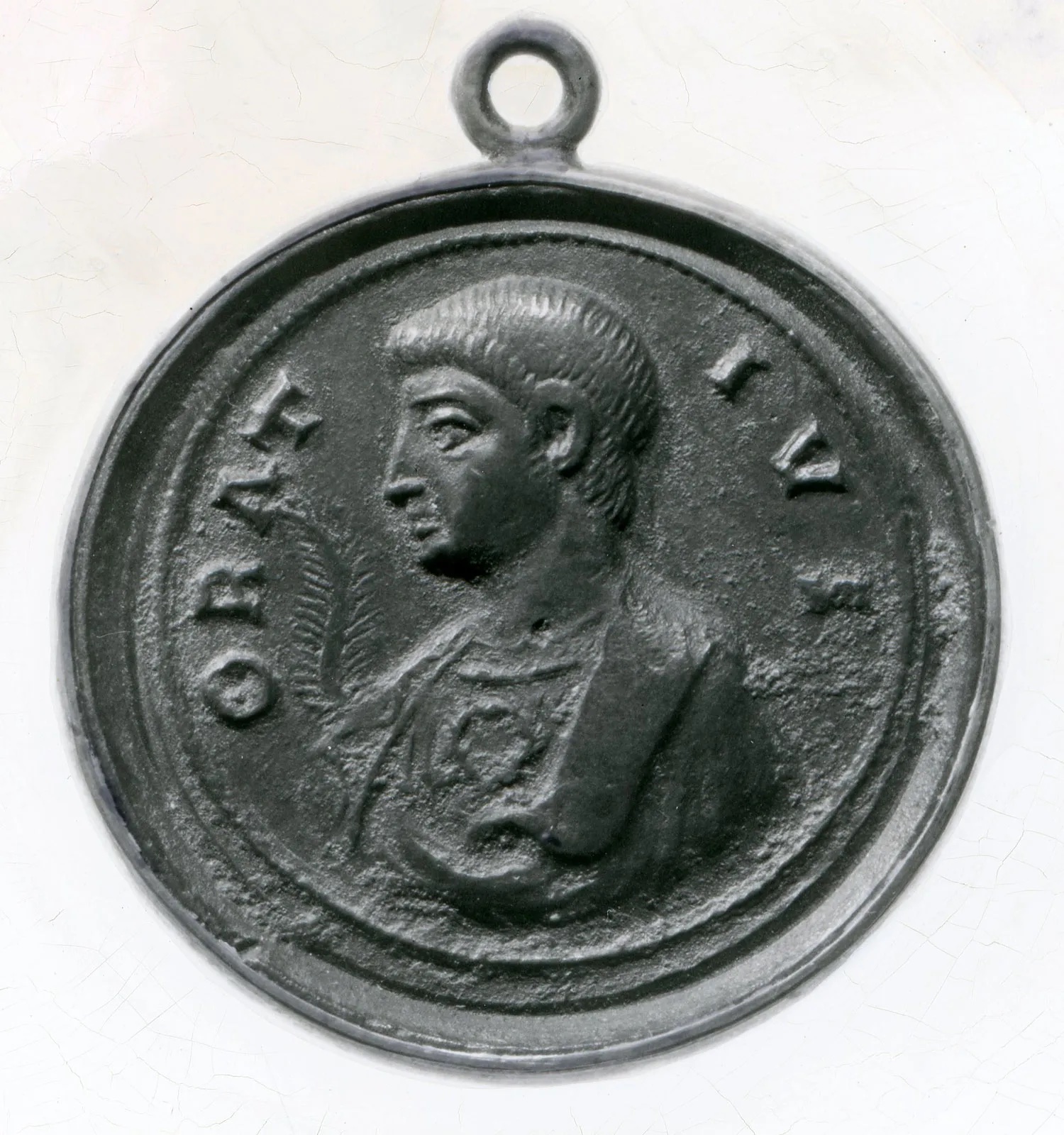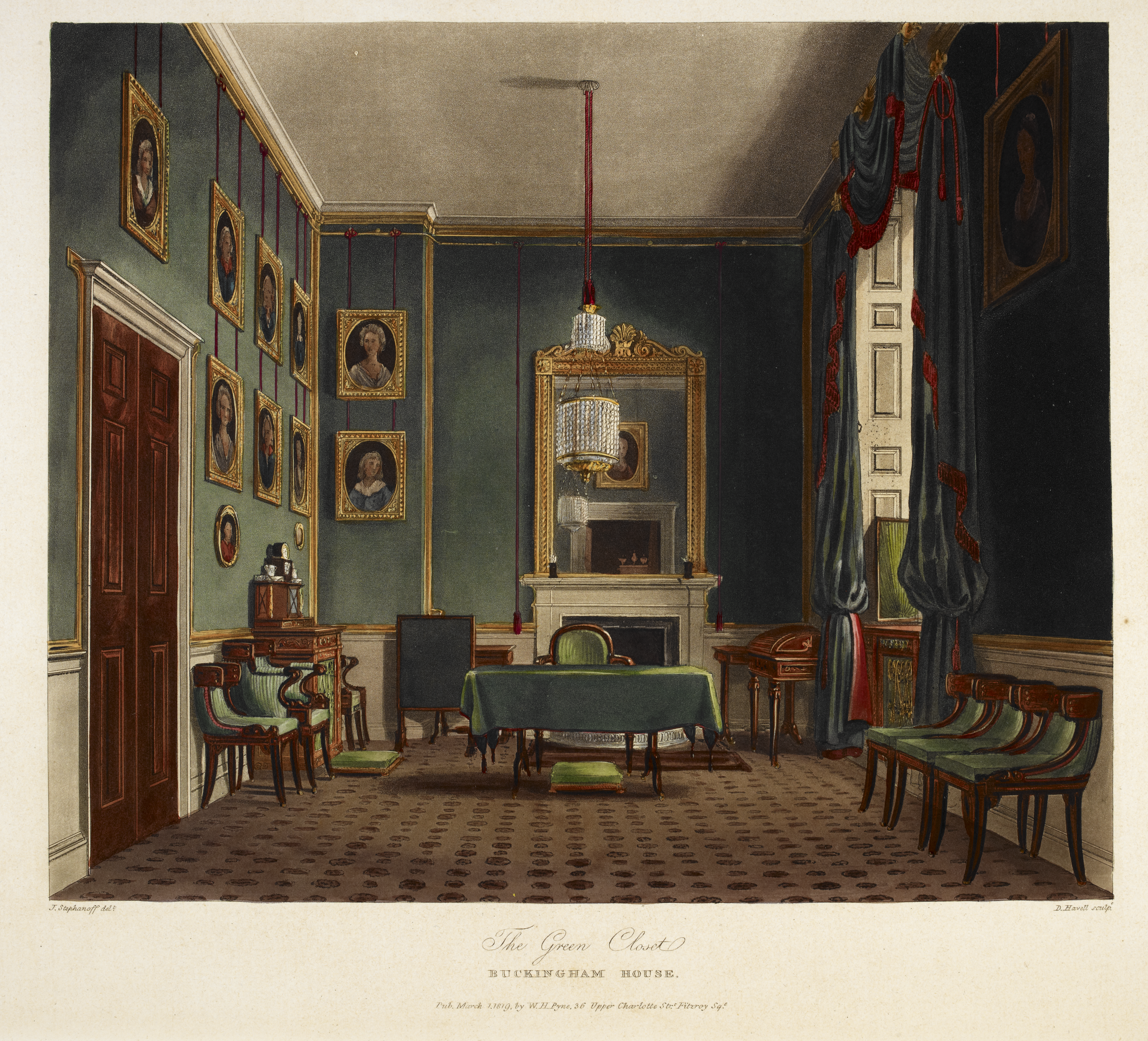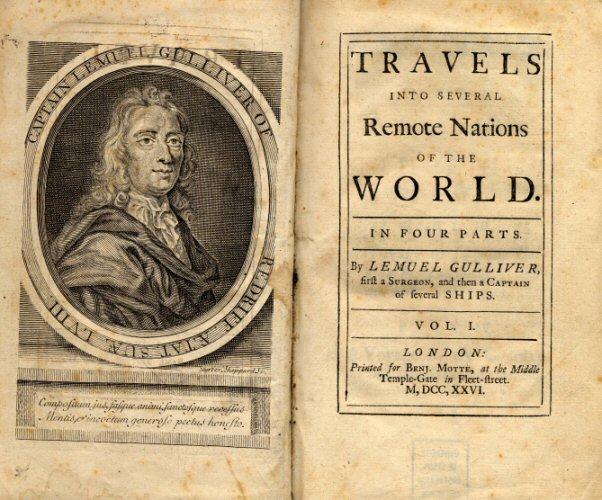The Rambler No. 4
By
Samuel Johnson
 Quintus Horatius Flaccus, or Horace, was a Roman lyric poet of the 1st
century BCE. The image above is a broze portrait medal containing his
likeness, dating to the 4th century CE, housed in the Bibliothèque
Nationale, Paris (Encyclopedia Britannica). - [TH]heroicHeroic romance is a genre that flourished
during the 17th century and remained popular, as parodied by Charlotte Lennox in
The Female Quixote, into the 18th. It had a profound
influence on the development of the novel, though many writers of the 18th
century would work to dissociate the genres, as Johnson does here. Formaally
loose in structure, heroic romances also "deliberately eschew[ed]
contemporaneity"; their plots featured courtly lovers engaged in "heroic stories
of love and war in a remote and idealized past" (Shellinger, Encyclopedia of the Novel, 1046). Some
representative heroic romances include Euphues by John
Lyly, L'Astree by Honore d'Urfe, and Clelie by Madame de Scudery. - [TH]ScaligerJulius Caesar Scaliger (1484-1558) was a Franco-Italian humanist
polymath most widely-known for his Poetices Libri
Septem (1561). For more information on the Poetices, see Bernard Weinberg's "Scaliger versus Aristotle on Poetics" (1942)
and this review by David
Marsh of a new edition and German translation of the whole.
Scaliger critiques the poetry of Italian humanist Giovanni
Pontano (1429-1503).
- [TH]closet
Quintus Horatius Flaccus, or Horace, was a Roman lyric poet of the 1st
century BCE. The image above is a broze portrait medal containing his
likeness, dating to the 4th century CE, housed in the Bibliothèque
Nationale, Paris (Encyclopedia Britannica). - [TH]heroicHeroic romance is a genre that flourished
during the 17th century and remained popular, as parodied by Charlotte Lennox in
The Female Quixote, into the 18th. It had a profound
influence on the development of the novel, though many writers of the 18th
century would work to dissociate the genres, as Johnson does here. Formaally
loose in structure, heroic romances also "deliberately eschew[ed]
contemporaneity"; their plots featured courtly lovers engaged in "heroic stories
of love and war in a remote and idealized past" (Shellinger, Encyclopedia of the Novel, 1046). Some
representative heroic romances include Euphues by John
Lyly, L'Astree by Honore d'Urfe, and Clelie by Madame de Scudery. - [TH]ScaligerJulius Caesar Scaliger (1484-1558) was a Franco-Italian humanist
polymath most widely-known for his Poetices Libri
Septem (1561). For more information on the Poetices, see Bernard Weinberg's "Scaliger versus Aristotle on Poetics" (1942)
and this review by David
Marsh of a new edition and German translation of the whole.
Scaliger critiques the poetry of Italian humanist Giovanni
Pontano (1429-1503).
- [TH]closet In the eighteenth century, a "closet" was a small office or
private room leading off of a bedroom; here, individuals would conduct business,
write letters, read, or converse with close acquaintances. It was not used to
store clothes. For more information, see Daily Life in
18th-Century England (85-86), or Danielle Bobker's "Literature and Culture of the Closet in the Eighteenth
Century," from which site the accompanying image, showing the Green
Closet at Frogmore, has been drawn. - [TH]plus_onerisIn Horace's Epistles 2.1, this quote
appears at line 170. In this epistle to Augustus, Horace is mounting a
defense of contemporary poetry and decrying the poor taste of the public. In
particular he argues that though comic subjects are thought easier to write,
they are actually more challenging than tragic subjects because readers give
them less "indulgence." Johnson will put this "indulgence" in terms of the
readers' familiarity with the more common subjects of comedy (Perseus
Project). - [TH]PlinyJohnson alludes here to a
story from Pliny the Elder's Natural History
(35.36). - [TH]VenusRoman counterpart to the Greek goddess
Aphrodite, Venus is a signifier of love, sex, propsperity, and desire (Wikipedia). - [TH]ApellesApelles of Kos, a Greek painter of the 4th century BCE
(Wikipedia).
Johnson here alludes to a lost painting of Venus Anadyomenes, or Venus rising
from the sea. - [TH]audienceThis is one of the most-quoted moments
in the essay. Here, Johnson is making the case that the young, untutored,
inexperienced minds that form the primary audience of the novel are easily led
astray by the familiarity of their subjects and the verisimilitude of their
style. - [TH]historiesJohnson here uses the term "familiar history" to describe
the probable fictions produced by "our present Writers." The term suggests the
truth-value associated with many eighteenth-century fictions that, like Robinson Crusoe (1719) or Pamela
(1740), were advertised as having been largely written by the characters
themselves. These are supposedly true histories, memoirs, or other accounts of
people who would seem familiar to contemporary audiences. - [TH]possession Here Johnson
argues that representations which are rendered in so familiar and realistic a
manner are especially dangerous to untutored minds because they seem to be truth
rather than fiction; he therefore cautions that authors provide the best models
for behavior and the cultivation of the mind. Johnson references
eighteenth-century thought about the power of the imagination to affect the body
regardless of the will, like that discussed by Michele de Montaigne in "Of the Power of the Imagination." For
information about the power of the female imagination to create monstrous
beings, see, among other works, Marie Hélène Huet's
Monstrous Imagination (1993). - [TH]promiscuous"Promiscuous"
here refers to a lack of distinction or discrimination; it is not primarily
sexual. See this Google
N-Gram graph charting the usage of the term over time. - [TH]increaseIn
this passage, Johnson articulates his sense of the purpose of novelistic
writing. For him, the purpose of fiction is education, as it provides a kind of
experience that is protected from the dangers that might accompany such actions
in real life. - [TH]Swift
In the eighteenth century, a "closet" was a small office or
private room leading off of a bedroom; here, individuals would conduct business,
write letters, read, or converse with close acquaintances. It was not used to
store clothes. For more information, see Daily Life in
18th-Century England (85-86), or Danielle Bobker's "Literature and Culture of the Closet in the Eighteenth
Century," from which site the accompanying image, showing the Green
Closet at Frogmore, has been drawn. - [TH]plus_onerisIn Horace's Epistles 2.1, this quote
appears at line 170. In this epistle to Augustus, Horace is mounting a
defense of contemporary poetry and decrying the poor taste of the public. In
particular he argues that though comic subjects are thought easier to write,
they are actually more challenging than tragic subjects because readers give
them less "indulgence." Johnson will put this "indulgence" in terms of the
readers' familiarity with the more common subjects of comedy (Perseus
Project). - [TH]PlinyJohnson alludes here to a
story from Pliny the Elder's Natural History
(35.36). - [TH]VenusRoman counterpart to the Greek goddess
Aphrodite, Venus is a signifier of love, sex, propsperity, and desire (Wikipedia). - [TH]ApellesApelles of Kos, a Greek painter of the 4th century BCE
(Wikipedia).
Johnson here alludes to a lost painting of Venus Anadyomenes, or Venus rising
from the sea. - [TH]audienceThis is one of the most-quoted moments
in the essay. Here, Johnson is making the case that the young, untutored,
inexperienced minds that form the primary audience of the novel are easily led
astray by the familiarity of their subjects and the verisimilitude of their
style. - [TH]historiesJohnson here uses the term "familiar history" to describe
the probable fictions produced by "our present Writers." The term suggests the
truth-value associated with many eighteenth-century fictions that, like Robinson Crusoe (1719) or Pamela
(1740), were advertised as having been largely written by the characters
themselves. These are supposedly true histories, memoirs, or other accounts of
people who would seem familiar to contemporary audiences. - [TH]possession Here Johnson
argues that representations which are rendered in so familiar and realistic a
manner are especially dangerous to untutored minds because they seem to be truth
rather than fiction; he therefore cautions that authors provide the best models
for behavior and the cultivation of the mind. Johnson references
eighteenth-century thought about the power of the imagination to affect the body
regardless of the will, like that discussed by Michele de Montaigne in "Of the Power of the Imagination." For
information about the power of the female imagination to create monstrous
beings, see, among other works, Marie Hélène Huet's
Monstrous Imagination (1993). - [TH]promiscuous"Promiscuous"
here refers to a lack of distinction or discrimination; it is not primarily
sexual. See this Google
N-Gram graph charting the usage of the term over time. - [TH]increaseIn
this passage, Johnson articulates his sense of the purpose of novelistic
writing. For him, the purpose of fiction is education, as it provides a kind of
experience that is protected from the dangers that might accompany such actions
in real life. - [TH]Swift Jonathan Swift, an Anglo-Irish satiric author of the early 18th century,
is most well-known today for writing Gulliver's
Travels. The title page to the first edition of Gulliver's Travels, reproduced from Wikimedia Commons, is above.
For more information on Swift, see this
biographical essay by Ian Campbell Ross (2016), and readers may
also be interested in this 2017 online
exhibition about Swift from the Library of Trinity College,
Dublin. - [TH]gratefulFrom the second
volume of the Miscellanies, compiled by Jonathan
Swift and Alexander Pope, this particular quotation is from Thoughts on Various Subjects," a
collection of witty aphorisms by Pope and contained in the second
volume. - [TH]partsAccording
to the Oxford English Dictionary, "part" used in this
sense (II.15) refers to "A personal quality or attribute, esp. of an
intellectual kind; an ability, gift, or talent." - [TH]witsTo be a "wit" in the eighteenth century was to be clever.
But it could also be a term of derision, referring to a set of people who
claimed false cleverness. Here, Johnson is suggesting that such people would
rather be thought by others to be clever, even at the expense of being thought
wicked. See Jack
Lynch's "Guide to Eighteenth-Century Vocabulary," which includes a
definition of this word. - [TH]publishersPublishers John Payne and Joseph
Boquet joined forces at mid-century, working from the center of the English
book trade in Paternoster Row. The pair published The
Rambler from 1750, bringing them much profit. It is said that the
publishers offered Johnson the astonishing sum of 2 guineas per issue. For a
brief overview of the printers, see footnote 2 to a 1750 letter between
Samuel Johnson and Charlotte Lennox (4), discussing the publication of her
Poems, in Norbert
Schürer's Charlotte Lennox: Correspondence and
Miscellaneous Documents. - [TH]
Jonathan Swift, an Anglo-Irish satiric author of the early 18th century,
is most well-known today for writing Gulliver's
Travels. The title page to the first edition of Gulliver's Travels, reproduced from Wikimedia Commons, is above.
For more information on Swift, see this
biographical essay by Ian Campbell Ross (2016), and readers may
also be interested in this 2017 online
exhibition about Swift from the Library of Trinity College,
Dublin. - [TH]gratefulFrom the second
volume of the Miscellanies, compiled by Jonathan
Swift and Alexander Pope, this particular quotation is from Thoughts on Various Subjects," a
collection of witty aphorisms by Pope and contained in the second
volume. - [TH]partsAccording
to the Oxford English Dictionary, "part" used in this
sense (II.15) refers to "A personal quality or attribute, esp. of an
intellectual kind; an ability, gift, or talent." - [TH]witsTo be a "wit" in the eighteenth century was to be clever.
But it could also be a term of derision, referring to a set of people who
claimed false cleverness. Here, Johnson is suggesting that such people would
rather be thought by others to be clever, even at the expense of being thought
wicked. See Jack
Lynch's "Guide to Eighteenth-Century Vocabulary," which includes a
definition of this word. - [TH]publishersPublishers John Payne and Joseph
Boquet joined forces at mid-century, working from the center of the English
book trade in Paternoster Row. The pair published The
Rambler from 1750, bringing them much profit. It is said that the
publishers offered Johnson the astonishing sum of 2 guineas per issue. For a
brief overview of the printers, see footnote 2 to a 1750 letter between
Samuel Johnson and Charlotte Lennox (4), discussing the publication of her
Poems, in Norbert
Schürer's Charlotte Lennox: Correspondence and
Miscellaneous Documents. - [TH]RAMBLER.
NUMB. 4. Price 2 d.pricepriceThis issue cost two pence. In the eighteenth-century coinage system, 12 pence made a shilling, and 20 shillings made a pound. According to the Old Bailey Online, "A waterman would expect six pence to take you from Westminster to London Bridge, while a barber asked the same to dress your wig and give you a shave." While two pence was not out of reach for most people, the publication frequency of The Rambler and similar items would make regular personal purchasing out of the realm of possibility for most. However, men might read a copy in a coffeeshop, entry to which, in the seventeenth century, was a penny. For a deeper look at money, purchasing power, and income, see Robert Hume's article "The Value of Money in Eighteenth-Century England: Incomes, Prices, Buying Power—-and Some Problems in Cultural Economics" in Huntington Library Quarterly (2015). - [TH]
SATURDAY, 31 March 1750
To be Continued on TUESDAYS and SATURDAYS
Simul et jucunda et idonea dicere Vitae.epigraphepigraphFrom Horace's Ars Poetica 334: 'to deliver at once both the pleasures and the necessaries of life" (Perseus Project). - [TH] HOR[ace]HoraceHorace
 Quintus Horatius Flaccus, or Horace, was a Roman lyric poet of the 1st
century BCE. The image above is a broze portrait medal containing his
likeness, dating to the 4th century CE, housed in the Bibliothèque
Nationale, Paris (Encyclopedia Britannica). - [TH]
Quintus Horatius Flaccus, or Horace, was a Roman lyric poet of the 1st
century BCE. The image above is a broze portrait medal containing his
likeness, dating to the 4th century CE, housed in the Bibliothèque
Nationale, Paris (Encyclopedia Britannica). - [TH]
THE Works of Fiction, with which the present Generation seems more particularly delighted, are such as exhibit Life in its true State, diversified only by Accidents that daily happen in the World, and influenced by those Passions and Qualities which are really to be found in conversing with Mankind.
THIS Kind of Writing may be termed not improperly the Comedy of Romance, and is to be conducted nearly by the Rules of Comic Poetry. Its Province is to bring about natural Events by easy Means, and to keep up Curiosity without the Help of Wonder: it is therefore precluded from the Machines and Expedients of the Heroic Romanceheroic, heroicHeroic romance is a genre that flourished during the 17th century and remained popular, as parodied by Charlotte Lennox in The Female Quixote, into the 18th. It had a profound influence on the development of the novel, though many writers of the 18th century would work to dissociate the genres, as Johnson does here. Formaally loose in structure, heroic romances also "deliberately eschew[ed] contemporaneity"; their plots featured courtly lovers engaged in "heroic stories of love and war in a remote and idealized past" (Shellinger, Encyclopedia of the Novel, 1046). Some representative heroic romances include Euphues by John Lyly, L'Astree by Honore d'Urfe, and Clelie by Madame de Scudery. - [TH] and can neither employ Giants to snatch away a Lady from the nuptial Rites, nor Knights to bring her back from Captivity; it can neither bewilder its Personages in Desarts, nor lodge them in imaginary Castles.
I REMEMBER a Remark made by ScaligerScaligerScaligerJulius Caesar Scaliger (1484-1558) was a Franco-Italian humanist polymath most widely-known for his Poetices Libri Septem (1561). For more information on the Poetices, see Bernard Weinberg's "Scaliger versus Aristotle on Poetics" (1942) and this review by David Marsh of a new edition and German translation of the whole. Scaliger critiques the poetry of Italian humanist Giovanni Pontano (1429-1503). - [TH] upon Potanus, that all his Writings are filled with Images, and that
![Page [19]](https://anthologyassetsdev.lib.virginia.edu/johnson-rambler-4/pageImages/19.jpg)




